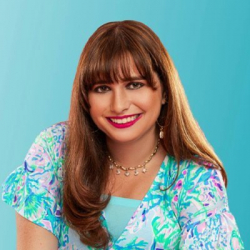When interns, apprentices, and employees with disabilities are finally welcomed into the organization or have been there for any length of time, the “diversity” checkbox can’t just be viewed as something to check off like a completed task. That box doesn’t get checked when the individuals receive proper accommodations, or even when they get their first paycheck or clear an introductory probationary period. In fact, it never really gets checked, as creating a sense of inclusion and belonging is a long-term effort.
Here’s the thing: so often, we view our job in inclusion as “complete” once we onboard new disabled hires. We assume that these folks will stay by default because of the perceptions of loyalty. Or we believe they’ll stay because of ableist beliefs about how no one else will take a chance on them, or they have their own internalized ableism that no one else will want them – both of which are misguided narratives. Retention is a big part of building an inclusive culture.
One of the things I struggled with most within the workforce was not a lack of accommodations but finding great mentors. I didn’t feel like I knew the “secret” social rules to click with someone right away and have them take me under their wing or guide me through career moves and push me. The assigned mentors I got through work or networking events did not take the time to get to know me, or it felt too forced even to try to build a genuine relationship. I thought I had failed epically on some level, and it is something that has always haunted me. With this realization, I try to make myself available as a mentor, especially to young disabled and neurodivergent law students, lawyers, and writers alike.
It turns out I didn’t fail at mentorship but finding the right mentor (and having mentors dedicated to your career trajectory, future, and being people you can trust) is tough. Maybe we’re not perceived as people who want careers or that learning to communicate with someone different is “too much.” Some forget that, like everyone else, people with disabilities also aspire to have careers, success, happiness, and all the same things others do, too. Disability:IN has a list of ideas to build mentoring relationships with employees, interns, and students with disabilities. A lot of this ultimately falls on how we forge those relationships, and two of the biggest things we can express in building mentoring relationships are empathy and communication.
Empathy, as nursing scholar Theresa Wiseman explains, has four major unique attributes:
- To be able to see the world as others see it;
- To be nonjudgmental;
- To understand another person’s feelings; and
- To communicate your understanding of that person’s feelings.
For non-disabled people, it can be challenging to picture how someone else experiences the world and equally challenging to comprehend how it makes them feel while expressing your attempt at understanding an experience you might not ever have.
As for communication, this is a two-sided thing. I’m very direct because of my neurodivergent, no-frills style. Other people are more subtle or sometimes make it up as they go. One of the first mentors I had was supposed to meet me for lunch, and on the day we had planned, they were caught up with something. It never got rescheduled even though I tried. Looking back, I would have instead had the person assigned to mentor me be candid and say they were either uninterested or too preoccupied to assist me or commit to that relationship at the time. Think of how much we do this in other relationships; we “ghost” people or say, “It’s not you, it’s me.” Be honest about your expectations and theirs. At the time, I didn’t want an occasional lunch buddy, but rather a person I could learn how to do my trade better from and seek career advice.
However, I have learned that mentors for us don’t have to be just “career” people. Some of the mentors I have now are far more informal – people I’ve met along the way who might also be autistic. Or they are lawyers. Or parents who view me as one of their kids and cheer me on. So pass it forward, share your knowledge, and genuinely connect with an employee with a disability or a young person with a disability. You might think they’ll learn a ton from you, but trust me: you’ll learn a lot from us, too. Maybe even more.
Join DirectEmployers team April 20-22, 2022, in San Diego, CA, to hear more from Haley Moss and other industry experts at our 2022 Annual Meeting & Conference (DEAMcon22)!
About the Guest Author

Haley Moss, Esq.
Haley Moss made international headlines for becoming the first documented openly autistic attorney admitted to The Florida Bar. She received her Juris Doctor from the University of Miami School of Law in 2018 and graduated from the University of Florida in 2015 with her B.S. in Psychology and B.A. in Criminology. Haley is a speaker, educator, scholar, and consultant on neurodiversity at work, the Americans with Disabilities Act, autism, and disability-adjacent topics.

